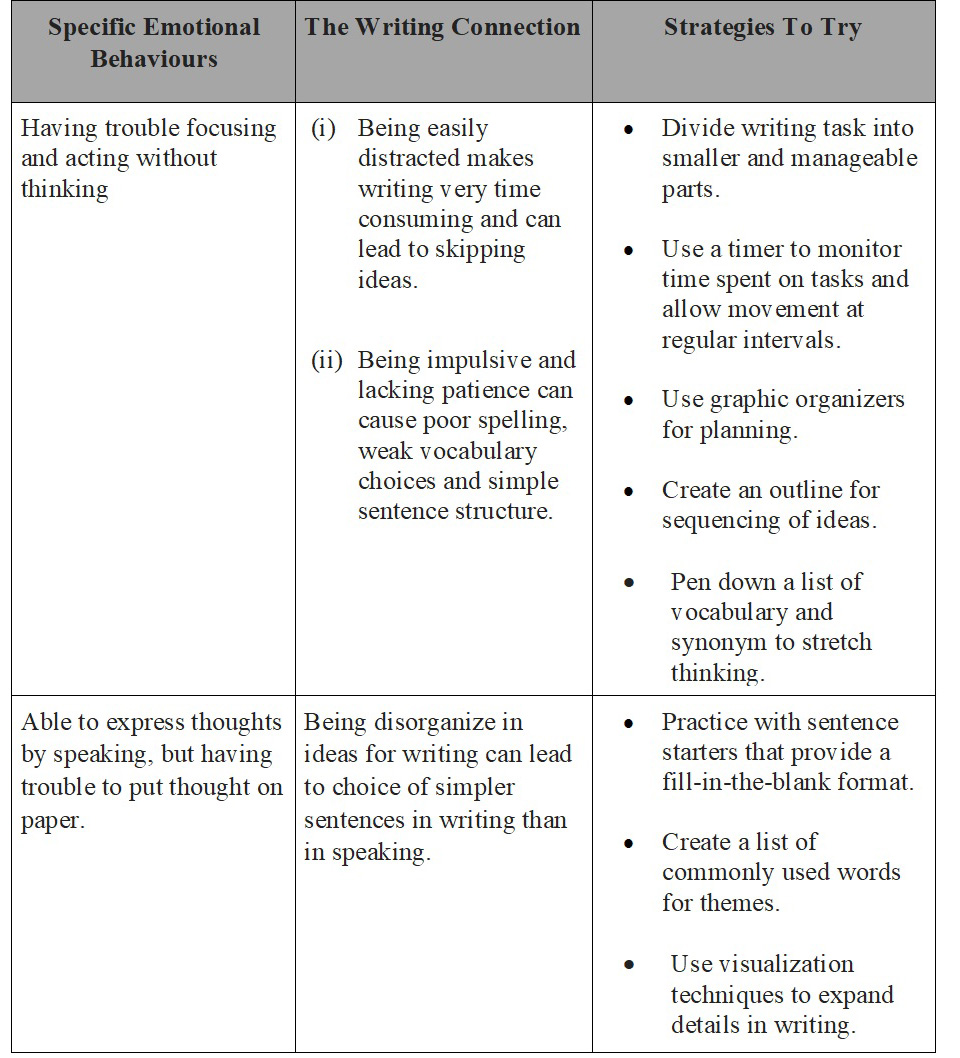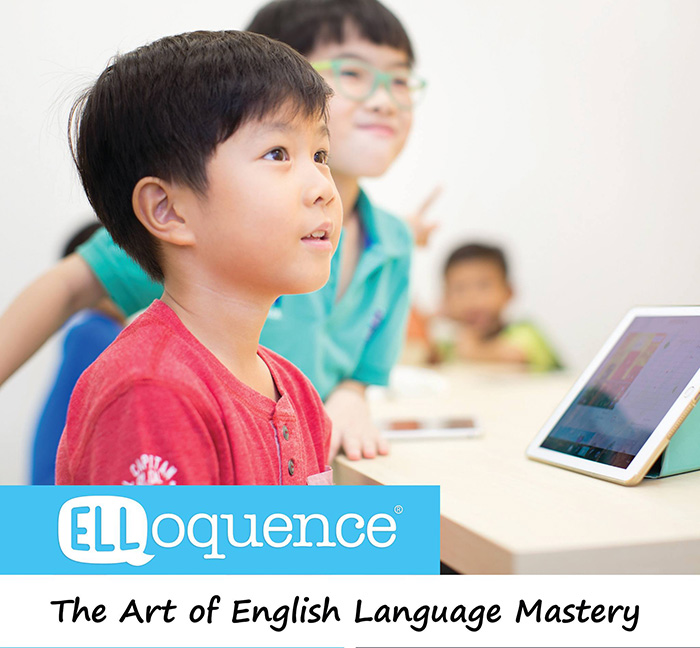5 Proven Ways to Help Your Child Excel In Writing
Submitted by Advertiser KiasuParent

Sometimes children are just not that into writing, and it shows in their school work.
For most of our children, except for homework assignments, writing is not a big part of their everyday life at home.
What can parents do to help their child develop good writing skills and habits?
We share some of the ways that can help your child to excel in writing.
1) Focus on Writing Early
Educational technology advances show that reading and writing development are intertwined in early learning.
The physical act of writing letters and early words enhances the child’s ability to read. The complementary relationship between reading and writing continues long after these early efforts.
You can enhance your child’s skills dramatically by conducting meaningful learning activities at home:
(a) Write every day
Encourage your child to keep a journal. This is an excellent writing practice as well as a good outlet for expressing feelings. Content of the journal can vary, but are not limited to things that happen at home/school, about people he/she likes/dislikes and why, stories that he might like to share with friends to name just a few.
Most importantly, you share their journal, read the entries and discuss them together. It is a great bonding time too!
(b) Ask your child to tell you simple stories as you write them down
You note the story down as your child dictates, without making changes. Ask your child to read and clarify what you have written.
(c) Turn your child’s writing into books
Paste your child’s drawings and writings on pieces of construction paper. For each book, make a cover page with special art, a title, and his/her name as the author. Have a storytelling session at the next family gathering and let your child read his/her story aloud to the family.
(d) Suggest note-taking
Increase opportunities to write at home! For example, encourage your child to write their own shopping list, phone messages, family trips suggestions etc.
The positive experiences of writing in the early years forms the foundation of children’s interest and joy in expressing themselves through the written words.
By the time they reach Primary One, they should have already built up the skills essential for writing.
How do you know if they are ready?
Here’s our Primary One Readiness Checklist to find out if your Kindergartener’s English proficiency level is ready for entry into Primary One.
“ELLoquence Primary 1 Preparatory Programme focuses on developing Reading Readiness and Writing Skills in 5 & 6 years old children.”
In our Primary 1 Preparatory Programme, we help your child discover and dive into a rich language environment where words are made alive through sensorial experiences, emotional engagement and real life application.
The programme aims to equip the Kindergarten children with
(a) phonetic reading and writing skills
(b) elementary critical questioning skills to comprehend texts
(c) elementary story writing skills to organize and express their ideas.
Every child will require these skills to have a good headstart in Primary One.

2) Focus Writing Challenges Unique To Your Child
Every child is unique in strength and learning style.
Learn not to blindly follow the trend of popular tuition centres without truly understanding what your child really needs.
Trends are for the masses but your child is UNIQUE – in strength and in learning style.
Buck the mainstream tuition centres and give your child what he/she truly needs.
While you may be anxious to search for additional help to increase your child’s academic success, more so important for you to seek clarity on “what is prohibiting your child from writing better”?
You will be surprised that many a times these challenges are different from child to child, and cannot be resolved by merely increasing reading or writing practices.
Unless you identify specific strategies to help your child “unlearn and relearn right habits”, excessive repetition may lead to negative reinforcement of “wrong learning habits” only!
Examples of effective strategies for overcoming specific writing challenges:

“ELLoquence’s programmes treat every child’s learning journey as a customized developmental plan, to prepare your child for academic success by expanding their knowledge and skills as well as resolving their learning gaps.”
ELLoquence’s curriculum and methodologies are carefully developed and constantly reviewed by the language specialists of Thesys International (The learning service branch of Fairmont Education Group).
With over 60 years of experience in the United States and many school partners around the world, our students are able to enter top colleges with their high English proficiency gained through the ELLoquence program. They learn not based on route learning but effective teaching and learning strategies.
Find out more about our programmes here.

3) Focus on the Building Blocks of Good Writing
A rich language environment is a foundation for good writing.
Other than news articles from newspaper, you can help to build your child’s range of words using concrete and real-life contexts.
Encourage your child:
(i) keep a vocabulary notebook close by to pen down words learned during family chat or discussion;
(ii) learn from online word games and makes sentences using the new words.
Nonetheless, this incidental way of learning vocabulary may be challenging for children to retain words and apply such new words in sentence making. Learning will be much conducive and effective if there is a systematic approach to scaffold writing skills so that your child will know how to write with depth.
“ELLoquence uses 80 real-life themes as the basis to learn vocabulary and grammar systematically, and to engage students in critical thinking for discussion of real world issues.”
In addition, we use information technology as a tool to engage your child in sensorial learning while a teacher imparts knowledge through meaningful classroom discussion and personal coaching for every child.
Through such a rich contextual approach, your child can pick up grammar, vocabulary and language skills much better than learning via boring textbook drills.
4) Focus On The Writer, Not The Task
The majority of writing curriculum emphasizes on teaching writing formats and the structure of writing. They do not help your child access the words within.
More commonly, these programmes create assignments that will reproduce the structure of the model or the form, and then expect your child to produce writing that matches that set of expectations without necessarily taking into account what your child’s unique individual needs.
Your child may receive excessive practices on meeting the expectation of the rubric, but he/she may remain incapable of expressing his/her voice.
In the end, your child may still lack the fluency and vocabulary in expressing what he/she wants to say, and how he/she wants to say it.
“With consistent practice, ELLoquence can help your children to take advantage of their cultivated writing voice, their evolving rhetorical thinking, as well as their language arts powers.”
The core difference between ELLoquence and other programmes is that we teach writing much the way professional writers teach writing.
Professional writing instruction usually starts with a person—what do you have to say?
We focus on inculcating good writing habits including skills of revising and editing their work with confidence.
ELLoquence also promotes both substance (insight, thought processes, developed vocabulary, mastery of material) and style (enabling students to discover the variety of writing voices they have inside to meet the demands of any writing assignment).
5) Focus On Building Thinking, Not Imitating It
Good writing is not about imitating others’ work, it is about voicing out your personal ideas and making connections with the world and the people around you.
Hence, it is essential to provide opportunities for your child to practice such thinking processes and express their thinking outcomes via speaking or writing.
Simple exercises you can do with your child include asking the what, where, when, why, how questions. An activity as basic as this can have a profound impact on your child as you are helping your child build crucial synapses in his brain – the more the synapses the more nimble and versatile your child’s brain becomes setting him on the path to academic excellence.

“The ELLoquence curriculum has been designed and tailored for Singapore-based students and are aligned to the Ministry of Education (MOE)’s syllabus.”
At ELLoquence, we invite our students to be:
- CLEAR
We challenge them to be clear by asking for explanations and examples.
- ACCURATE
We encourage them to highlight related key facts using different colours to form connections within a text.
- RELEVANT
We invite them to raise questions or topics that are pertinent to the discussion.
- LOGICAL
We think through the details of the topic from different angles, and encourage our students to make logical connections and challenge assumptions.
- FAIR
By making sure they consider other people’s perspectives when drawing conclusions, we weave in the life-long skill of empathy into their thinking processes.
Through consistent practices, your child will be capable of presenting facts and narrating emotions in their writing through the correct choice of words and sequence of events.
By applying critical thinking, they can also learn to make inferences from the texts and explore alternatives and recognize assumptions. These skills are very useful to your child who needs to tackle higher-order thinking questions in Paper 2 of the MOE examinations.

Conclusion
ELLoquence is confident in helping your child improves his/her language proficiency within a short period of time.
If you like your child to learn how to write better and impress their teachers, enrol your child with ELLoquence today!
If you are still unsure whether this works for you, we are offering 2 free trial lessons ONLY to readers of KiasuParents!
Take advantage of this promotion – visit our website or contact us 8742 2100. You can also drop us a message!
For timely updates, tips and information, do check out our Facebook page.
